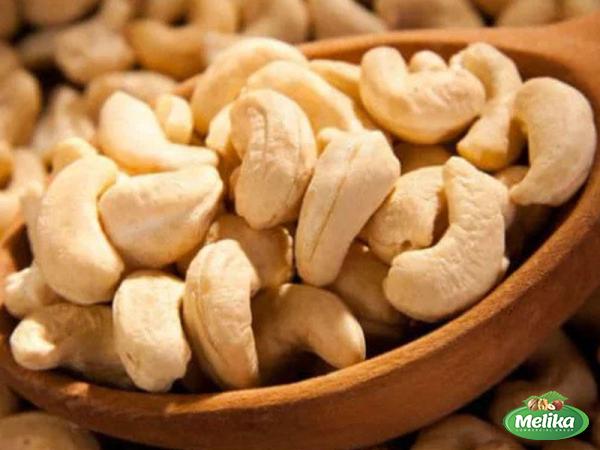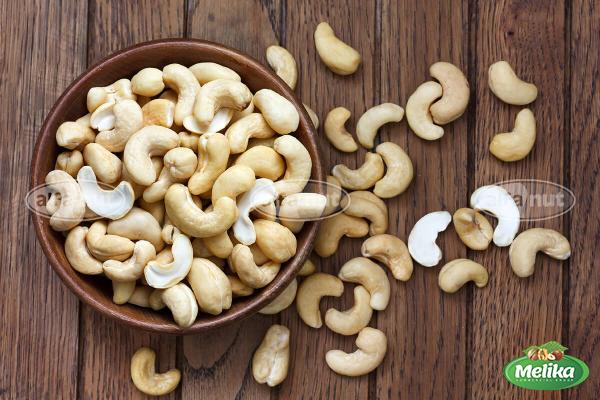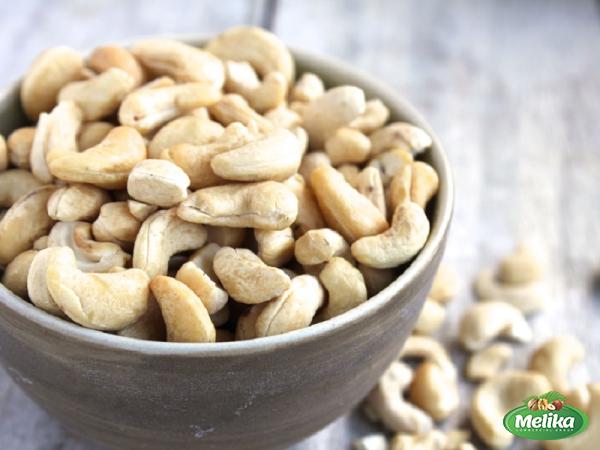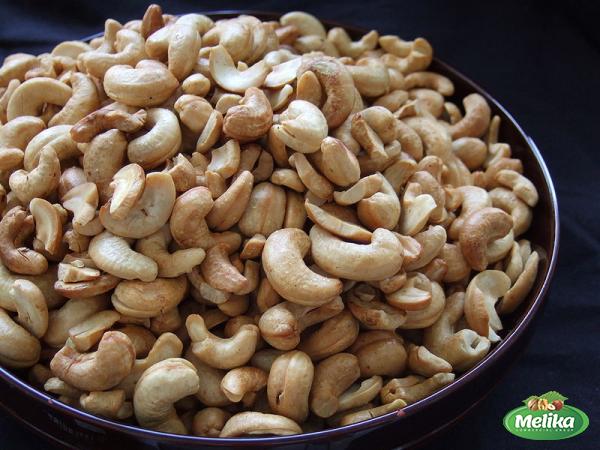Goa, often referred to as the “Cashew Capital of India,” holds a significant position in the global cashew market. Renowned for its premium quality, distinct flavor, and rich aroma, Goa cashews have gained international recognition. This article provides a comprehensive summary of the cashew market in Goa, exploring its production, export trends, key challenges, and future prospects. 1. Cashew Production in Goa: Cashew cultivation in Goa has a long-standing history, with Portuguese settlers introducing the crop to the region centuries ago. Approximately 80-90% of cashew cultivation in Goa takes place in the coastal belt, with the talukas of Bardez, Salcete, Tiswadi, and Pernem being major cashew-growing regions. Traditional farming practices, ample sunlight, and favorable climatic conditions contribute to the excellent quality of Goa cashews. 2. Export Trends: Goa has emerged as a leading exporter of cashews in India. Its geographical proximity to major international markets such as the Middle East and European nations has facilitated smooth trade. The state exports cashews in various forms, including raw cashew nuts, kernels, and value-added products such as roasted and flavored cashews. 3. Key Players: Goa boasts a robust network of cashew processing units, with both small-scale and large-scale players actively contributing to the market. Some prominent cashew processing companies in Goa include the Goa Cashew Manufacturers and Exporters Association (GCMEA), Mangaluru Cashew Industries, Goa Nuts, and Madhav Overseas.

nuts
 4. Value Addition and Processing: Goa’s cashew industry places significant emphasis on value addition and processing. Numerous processing units in the state have modern machinery and employ advanced techniques to ensure the highest quality of cashew kernels. Value-added products like cashew feni (a local liquor) and cashew-based sweets are also produced, catering to both domestic and international markets. 5. Challenges Faced: While the cashew market in Goa has experienced significant growth, it also faces certain challenges. One of the primary concerns is the fluctuation in raw cashew nut prices due to factors like climate change, crop diseases, and global demand-supply dynamics. The industry also faces competition from other cashew-producing regions in India and abroad. 6. Initiatives and Support: To address the challenges faced by the cashew industry, the Government of Goa has undertaken various initiatives and provided support to farmers and processors. These include financial assistance, skill development programs, subsidies, and research and development investments aimed at promoting sustainable cashew cultivation and ensuring quality standards. 7. Market Opportunities and Future Scope: The cashew market in Goa exhibits immense potential for growth and expansion. The rising global demand for healthy snacks and plant-based proteins, coupled with the increasing popularity of cashew-based products, presents a promising future for Goa’s cashew industry. Furthermore, the growing trend of organic and sustainable agriculture offers an opportunity for farmers and processors to tap into niche markets. Conclusion: The cashew market in Goa continues to thrive, supported by its rich history, superior quality, and favorable geographical advantages. With its strong network of processors, exports to global markets, and government initiatives, the industry is well-positioned to capitalize on emerging opportunities. Upholding the tradition of cashew cultivation while embracing innovation and value addition, Goa’s cashew industry looks set to maintain its reputation as a leading player in the global market. I. Overview of the Cashew Market in Goa The cashew market in Goa has witnessed significant growth over the years, becoming a major source of revenue for the state. Goa’s cashew cultivation dates back to the 16th century when Portuguese settlers introduced the crop to the region.
4. Value Addition and Processing: Goa’s cashew industry places significant emphasis on value addition and processing. Numerous processing units in the state have modern machinery and employ advanced techniques to ensure the highest quality of cashew kernels. Value-added products like cashew feni (a local liquor) and cashew-based sweets are also produced, catering to both domestic and international markets. 5. Challenges Faced: While the cashew market in Goa has experienced significant growth, it also faces certain challenges. One of the primary concerns is the fluctuation in raw cashew nut prices due to factors like climate change, crop diseases, and global demand-supply dynamics. The industry also faces competition from other cashew-producing regions in India and abroad. 6. Initiatives and Support: To address the challenges faced by the cashew industry, the Government of Goa has undertaken various initiatives and provided support to farmers and processors. These include financial assistance, skill development programs, subsidies, and research and development investments aimed at promoting sustainable cashew cultivation and ensuring quality standards. 7. Market Opportunities and Future Scope: The cashew market in Goa exhibits immense potential for growth and expansion. The rising global demand for healthy snacks and plant-based proteins, coupled with the increasing popularity of cashew-based products, presents a promising future for Goa’s cashew industry. Furthermore, the growing trend of organic and sustainable agriculture offers an opportunity for farmers and processors to tap into niche markets. Conclusion: The cashew market in Goa continues to thrive, supported by its rich history, superior quality, and favorable geographical advantages. With its strong network of processors, exports to global markets, and government initiatives, the industry is well-positioned to capitalize on emerging opportunities. Upholding the tradition of cashew cultivation while embracing innovation and value addition, Goa’s cashew industry looks set to maintain its reputation as a leading player in the global market. I. Overview of the Cashew Market in Goa The cashew market in Goa has witnessed significant growth over the years, becoming a major source of revenue for the state. Goa’s cashew cultivation dates back to the 16th century when Portuguese settlers introduced the crop to the region.
Specifications of nuts
 Today, cashew plantations cover over 99,000 hectares in the state, making it a key player in India’s cashew industry. II. Quality and Distinctiveness One of the primary factors contributing to Goa’s prominence in the cashew market is the superior quality of its cashews. The coastal belt’s unique climatic conditions provide the ideal environment for cashew cultivation, resulting in cashew kernels with remarkable flavor, size, and texture. The distinct taste and aroma of Goa cashews have earned them a reputation as some of the finest available in the market. III. Production and Processing Goa’s cashew production begins with the cultivation of cashew trees, which take around five to six years to reach maturity. The harvesting season typically begins in February and extends until May. Once harvested, the cashew apples are collected and processed to extract the cashew nut. The nuts are then sun-dried, shelled, and processed into kernels. The state boasts a network of cashew processing units equipped with modern machinery and techniques for ensuring high-quality cashew kernels. These processing units remove any impurities, sort the kernels based on size, and conduct quality checks to maintain the premium standards associated with Goa cashews. IV. Export Trends and Markets Goa’s cashew industry is heavily reliant on exports, with the majority of cashews produced in the state being sent to international markets. The largest export market for Goa cashews is the Middle East, followed by European countries such as the United Kingdom, Germany, and the Netherlands. The demand for Goa cashews in these markets is driven by their superior quality and taste. V. Value-Added Cashew Products In addition to exporting raw cashew nuts and kernels, Goa’s cashew industry has expanded into the production of value-added products. Roasted and flavored cashews have gained popularity as healthy and delicious snacks. Various flavors, including chili, masala, and honey-roasted, cater to diverse consumer preferences. These value-added products have seen increased demand both domestically and internationally. VI. Government Initiatives and Support The Government of Goa recognizes the importance of the cashew industry and has implemented several initiatives to support its growth. Financial assistance is provided to farmers for the purchase of cashew saplings, equipment, and machinery. The government also offers subsidies for the establishment of cashew processing units and research and development activities related to cashew cultivation and processing. Furthermore, the government conducts skill development programs and training sessions for farmers and processors to enhance their knowledge and techniques. These initiatives aim to improve the overall productivity and quality of Goa’s cashew crops and strengthen the industry’s competitive position. VII. Challenges in the Cashew Market While the cashew market in Goa shows promise, it also faces certain challenges. Fluctuations in the prices of raw cashew nuts pose a significant concern.
Today, cashew plantations cover over 99,000 hectares in the state, making it a key player in India’s cashew industry. II. Quality and Distinctiveness One of the primary factors contributing to Goa’s prominence in the cashew market is the superior quality of its cashews. The coastal belt’s unique climatic conditions provide the ideal environment for cashew cultivation, resulting in cashew kernels with remarkable flavor, size, and texture. The distinct taste and aroma of Goa cashews have earned them a reputation as some of the finest available in the market. III. Production and Processing Goa’s cashew production begins with the cultivation of cashew trees, which take around five to six years to reach maturity. The harvesting season typically begins in February and extends until May. Once harvested, the cashew apples are collected and processed to extract the cashew nut. The nuts are then sun-dried, shelled, and processed into kernels. The state boasts a network of cashew processing units equipped with modern machinery and techniques for ensuring high-quality cashew kernels. These processing units remove any impurities, sort the kernels based on size, and conduct quality checks to maintain the premium standards associated with Goa cashews. IV. Export Trends and Markets Goa’s cashew industry is heavily reliant on exports, with the majority of cashews produced in the state being sent to international markets. The largest export market for Goa cashews is the Middle East, followed by European countries such as the United Kingdom, Germany, and the Netherlands. The demand for Goa cashews in these markets is driven by their superior quality and taste. V. Value-Added Cashew Products In addition to exporting raw cashew nuts and kernels, Goa’s cashew industry has expanded into the production of value-added products. Roasted and flavored cashews have gained popularity as healthy and delicious snacks. Various flavors, including chili, masala, and honey-roasted, cater to diverse consumer preferences. These value-added products have seen increased demand both domestically and internationally. VI. Government Initiatives and Support The Government of Goa recognizes the importance of the cashew industry and has implemented several initiatives to support its growth. Financial assistance is provided to farmers for the purchase of cashew saplings, equipment, and machinery. The government also offers subsidies for the establishment of cashew processing units and research and development activities related to cashew cultivation and processing. Furthermore, the government conducts skill development programs and training sessions for farmers and processors to enhance their knowledge and techniques. These initiatives aim to improve the overall productivity and quality of Goa’s cashew crops and strengthen the industry’s competitive position. VII. Challenges in the Cashew Market While the cashew market in Goa shows promise, it also faces certain challenges. Fluctuations in the prices of raw cashew nuts pose a significant concern.
buy nuts
 Factors such as climate change, diseases affecting cashew trees, and global supply and demand dynamics can impact the prices of raw materials, affecting the profitability of cashew farmers and processors. Another challenge is the competition from other cashew-producing regions within India and abroad. Other Indian states such as Kerala and Maharashtra also have robust cashew industries, presenting competition in terms of quality and price. Additionally, countries like Vietnam, Tanzania, and Brazil have emerged as major players in the global cashew market. VIII. Niche Market Opportunities Despite the challenges, there are ample opportunities for the cashew market in Goa to expand and diversify. The rising global demand for healthy snacks and plant-based proteins provides excellent prospects for cashew-based products. Cashew milk, cashew butter, and cashew-based desserts are gaining popularity among health-conscious consumers, opening new market segments for Goa’s cashew industry to explore. Furthermore, the growing trend of organic and sustainable agriculture offers opportunities for farmers and processors to tap into niche markets. By adopting organic farming practices and obtaining organic certifications, Goa’s cashew industry can cater to the growing demand for organic cashews, attracting environmentally conscious consumers. IX. Industry Collaboration and Innovation To remain competitive in the global cashew market, stakeholders in Goa’s cashew industry should collaborate and innovate. Collaboration between farmers, processors, and government bodies can help improve supply chain efficiency, quality control, and market intelligence. Sharing best practices and engaging in knowledge exchange can enhance productivity and strengthen the industry’s competitive advantage. Moreover, embracing innovation is crucial for staying relevant in a rapidly evolving market. Investing in research and development to develop new cashew-based products, explore value-addition opportunities, and enhance processing techniques can help Goa’s cashew industry differentiate itself and create a unique selling proposition in the global market. X. Conclusion The cashew market in Goa, known as the “Cashew Capital of India,” continues to thrive due to its rich history, superior quality cashews, and favorable geographic location. With the support of government initiatives, investments in research and development, and a focus on value addition and innovation, Goa’s cashew industry is well-positioned for growth and can maintain its reputation as a leading player in the global cashew market.
Factors such as climate change, diseases affecting cashew trees, and global supply and demand dynamics can impact the prices of raw materials, affecting the profitability of cashew farmers and processors. Another challenge is the competition from other cashew-producing regions within India and abroad. Other Indian states such as Kerala and Maharashtra also have robust cashew industries, presenting competition in terms of quality and price. Additionally, countries like Vietnam, Tanzania, and Brazil have emerged as major players in the global cashew market. VIII. Niche Market Opportunities Despite the challenges, there are ample opportunities for the cashew market in Goa to expand and diversify. The rising global demand for healthy snacks and plant-based proteins provides excellent prospects for cashew-based products. Cashew milk, cashew butter, and cashew-based desserts are gaining popularity among health-conscious consumers, opening new market segments for Goa’s cashew industry to explore. Furthermore, the growing trend of organic and sustainable agriculture offers opportunities for farmers and processors to tap into niche markets. By adopting organic farming practices and obtaining organic certifications, Goa’s cashew industry can cater to the growing demand for organic cashews, attracting environmentally conscious consumers. IX. Industry Collaboration and Innovation To remain competitive in the global cashew market, stakeholders in Goa’s cashew industry should collaborate and innovate. Collaboration between farmers, processors, and government bodies can help improve supply chain efficiency, quality control, and market intelligence. Sharing best practices and engaging in knowledge exchange can enhance productivity and strengthen the industry’s competitive advantage. Moreover, embracing innovation is crucial for staying relevant in a rapidly evolving market. Investing in research and development to develop new cashew-based products, explore value-addition opportunities, and enhance processing techniques can help Goa’s cashew industry differentiate itself and create a unique selling proposition in the global market. X. Conclusion The cashew market in Goa, known as the “Cashew Capital of India,” continues to thrive due to its rich history, superior quality cashews, and favorable geographic location. With the support of government initiatives, investments in research and development, and a focus on value addition and innovation, Goa’s cashew industry is well-positioned for growth and can maintain its reputation as a leading player in the global cashew market.











Your comment submitted.